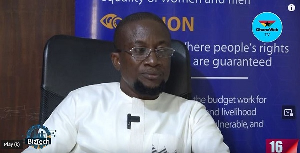The Australian High Commission in Ghana on Tuesday organised a programme to commemorate the International Women’s Day, which is an annual event observed on March 8.
The year’s event brought together mostly female participants from the public and private sectors, the various foreign embassies in Ghana, students from the University of Ghana, as well as some women achievers who were provided with a platform to promote learning, inspiration, networking and mentoring.
Mr Graeme Dickson, Acting Australian Ambassador in Ghana, said globally, the day represented an opportunity to celebrate the achievements of women while calling for greater equality.
He said the theme for the 2015 International Women’s Day:" Make it Happen” was to encourage effective action for advancing and recognising women.
According to Mr Dickson, although Ghana had recorded some successes in her effort to close the gender equality gap in areas such as education, politics, health and industry several years after the adoption of the Beijing Platform for Action, however, a lot more work remained to be done.
He commended the Government of Ghana for the adoption and implementation of various gender sensitive policies and programmes that promoted women empowerment and gender equality, but said there were still huge inequalities in areas such as female representation at decision making levels.
Mr Dickson called for intensified campaigns on the need to close the gender inequality gap particularly in areas such as health, politics, agriculture and the industrial sectors by increasing budgetary support to enhance infrastructure and training to empower more women and improve their health conditions.
Mr John Ackon, Deputy Minister of Gender, Children and Social Protection, said the theme also stressed on the level of implementation of the Beijing Platform for Action in Ghana.
He said the Ministry had been working towards the enactment of various Bills that were geared towards promoting affirmative action and gender equality, however, discussions on these Bills must be mutual and not one-sided.
He expressed concern about the low level of involvement and representation of women in decision making, especially in Parliament, and even at the district assembly levels.
“Unless we recognise the problem as a national issue, we will not progress,” he said, and blamed society for creating the gender parity through negative cultural and traditional practices, which often stereotyped women and relegate them to the background, leaving them vulnerable and impoverished.
Panelists, made up of some women achievers during an open discussion, advocated for the need for women to change their way of thinking and admit the fact that they possessed unique qualities that could be harnessed by humanity for both their own good and that of others.
They further called for closer collaboration across the gender stage to achieve the Millennium Development Goals on gender equality.
Regional News of Wednesday, 11 March 2015
Source: GNA
















